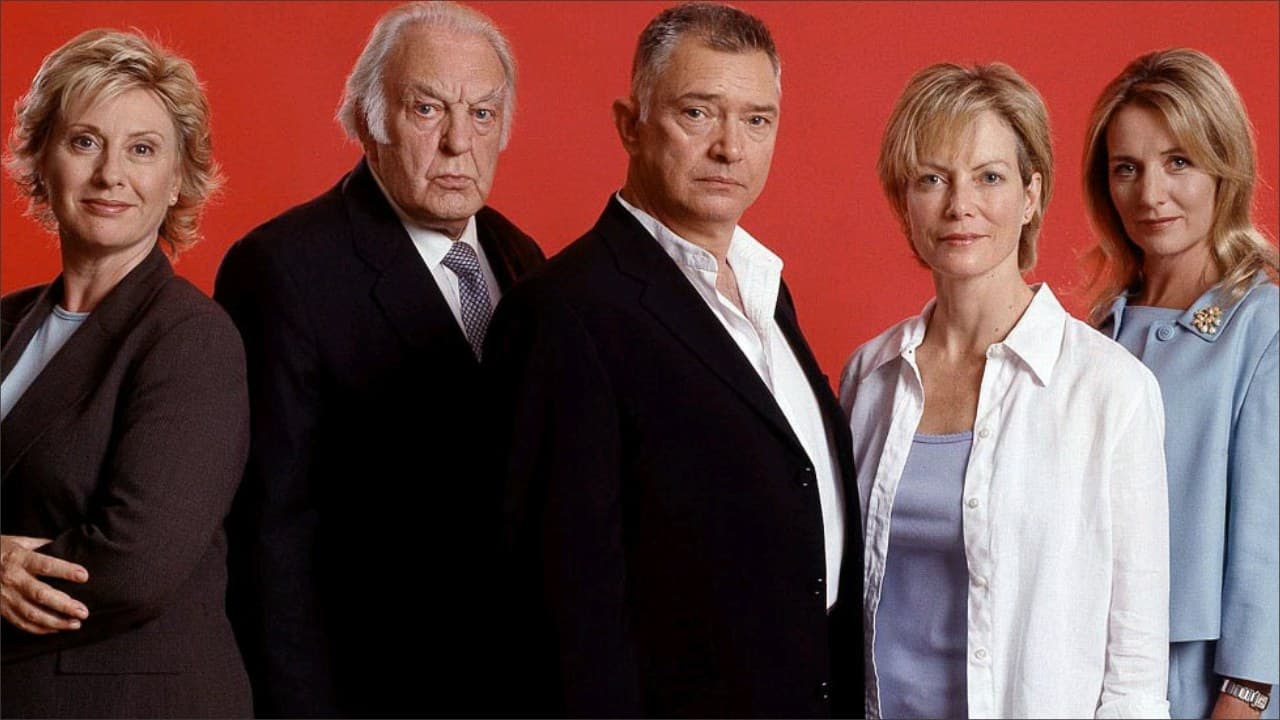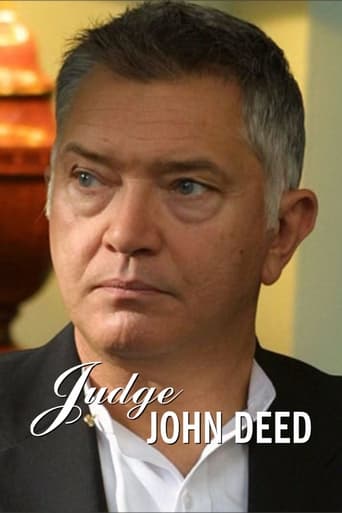

I have definite rules for all television series. Do they hold my attention? Are they well written? Are they well acted? In the case of this series, the answers are yes, yes and yes.Starting with the writer, nobody seems to mention him. The stories are well crafted, the different strands of each episode are seamless. I assume that Newman either has some knowledge of the law or access to those that do as the words of John Deed make sense to the viewer.The cast is attractive with a large number of regulars who have stuck with it for some years, always a good sign of their belief in the project. Martin Shaw is always good value for money. The beautiful Jenny Seagrove, (what did she see in Michael Winner), Sir Donald Sinden doing his Donald Sinden act, Christopher Cazenove et als, all turn in quality performances.Some have seen fit to compare this unfavourably with Rumpole of the Bailey, I cannot see the comparison. This is not played for laughs though there is humour a-plenty. This does not have the "clever" endings. This is a good attempt to portray English justice. At 90 minutes an episode, true things have to be tidied a little. A sub-plot is added and we see the human side of the characters' private lives. Each episode I have watched has held my attention, wholly and completely, to the credit titles at the end.A better comparison than Rumpole is probably the late, great John Thaw in Kavanagh QC. This, I know, was based on a real character, latterly elevated to the bench before his untimely death, the real Kavanagh was a friend of mine. I do not know if Deed is based on a real judge, or judges, but I would guess at "probably".I have seen some of the episodes more than once and they do not suffer from repetition. Yes I am a fan, long may Judge John Deed sit on the bench. And at only a handful of episodes a year, this viewer always yearns for his return.
... View MoreTo me; a layman; I find this series thoroughly enjoyable, it may not be true to life but that does not stop it being good, and as for Rumpole of the Bailey I would rate JJD well above, as enjoyable as Rumpole is I think JJD is far more absorbing and I find his personal life and it's problems; though I must say they are slightly over the top; add to the reality, as I should think anyone Judge, jury or the executioner will all have their ups and downs in their lives, and one thing I particularly like is how his colleagues are continually trying to pull him down but JJD always manages to get the upper hand. I would recommend anyone who has not seen an episode of Judge John Deed to take look; you will be hooked.
... View MoreA High Court Judge torn between both several lovers (in adultery or otherwise) and the boundaries of justice. For a student of the law almost a text book of cases of likelihood of bias, undue influence, zig-zagging on the straight and narrow and kiss and tell. However, that may well be the reality of major cases. There is no way of escaping the Judge. He is at his best battling with the politicians who would like to stage convictions, mistrials and favoring the cronies of the economy. He is humbled but not humiliated by the women he can't resist. He is brought to modesty by ex-partners, daughters, best friends and those who love him as much as they hate him, without ever being brought to his knees. And the wig does become him as well.
... View MoreThere have been two series so far of this programme. It seems deliberately to set out to contradict the impression of the British legal system portrayed by the excellent "Rumpole of the Bailey", of senile judges and smug arch-conservative barristers.Here, the main character has radical leanings, a messy private life and a very active libido. Much of the sub-plot is involved with side-swipes at the (Labour) government of the day, although the implication is that power corrupts; the political complexion of the office holders doesn't affect their greed or ambition.The one common factor with other screen portrayals of the British legal system is the very precise diction and grammar used by barristers and judges. The courtroom scenes are well worth watching.Some elements of the plot rather strain belief, but the series is quite enjoyable.
... View More